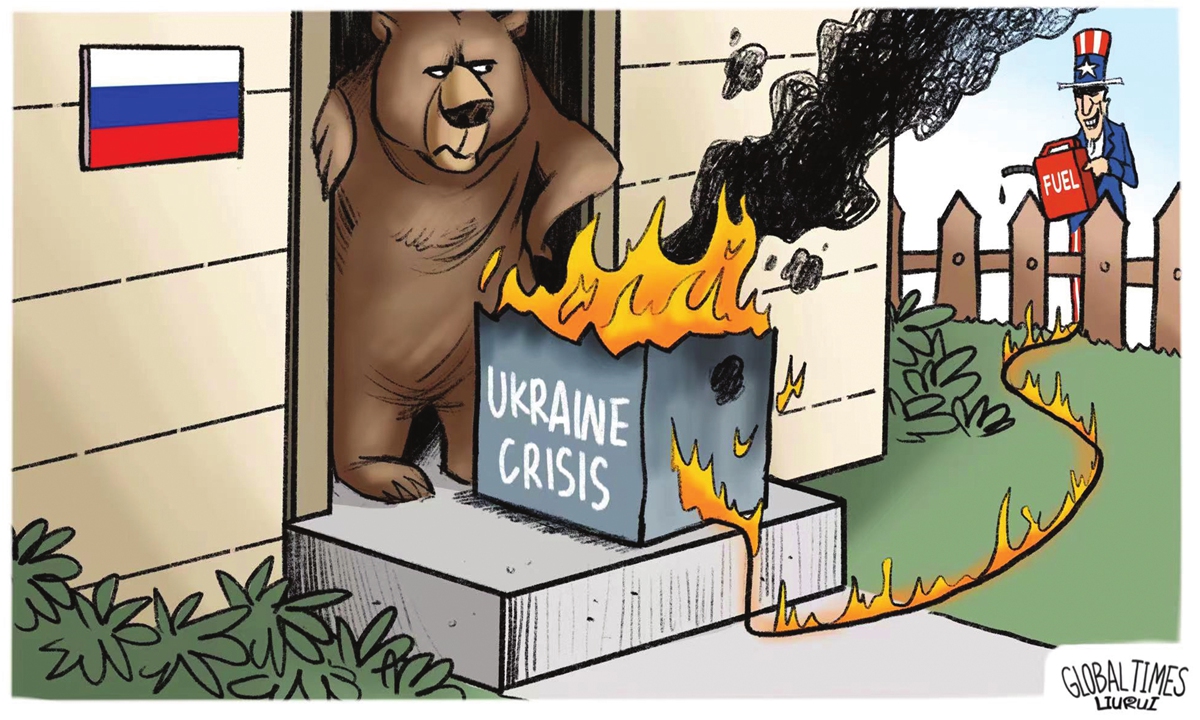Opinion: US-led sanctions against Russia spawning 'debt traps'

Illustration: Liu Rui/Global Times
Since the Ukraine conflict erupted on February 24, the US has taken on a leading role among the bloc of Western nations in imposing sanctions, sending weapons, and dispatching batches of its politicians for a Ukraine tour. Yet, four months into the crisis, Washington is still masterminding behind the scenes, bullets and artillery shells are still flying, and people are still bleeding—nothing appears to have changed, except for skyrocketing oil prices, looming food and energy shortages, and a Russia--together with other world financial institutions--now trapped in "defaults" and unpaid debts.
A statement from the White House on June 27 has offered fresh clues on the Pyrrhic victory that the US-led sanctions have clinched. According to Reuters, the Biden administration announced Monday that Russia had "defaulted" on its international bonds for the first time since the Bolshevik Revolution a century ago.
The Kremlin, on the other hand, has clarified that the payments due Sunday had been made, in US dollars and euros, on May 27 and yet the money remained stuck with Euroclear, a clearing house based in Belgium, according to CNN. Despite that, some view such defaults as a win for the US-led "sanctions bloc," a victory secured by the effective severance of Russia from the global payments system. Well, think again.
A host of experts on global finance have sounded their alarms upon the announcement. "It's a very, very rare thing, where a government that otherwise has the means is forced by an external government into default," said Hassan Malik, senior sovereign analyst and expert on emerging market hedge funds.
Russia owes $100 million in interest payments on one bond priced in US dollars and another priced in euros, which was originally due for payment on May 27, according to Al Jazeera. With Russia being forcibly decoupled from the global payment systems, it has also been reduced into a state of non-payment, "an artificial crisis manufactured by the West," as one analysis put it.
For international lenders who lent out the money to Russia, it also presents an unprecedented "debt trap," with their money withheld not by the borrower itself but by the "force majeure" of the situation, in which their unpaid loans are regarded as "collateral damage."
The "Made in the US default" indicates the destructive consequences that the current US dollar hegemony may bring to others. For the global financial market as a whole, the event offers a chilling lesson: that is, the international financial web, on which global trade and investment have been built, isn't immune to manipulation and weaponization. With the dominance of its currency and the capricious demeanor of a certain superpower, it is no guarantee that similar acts of manipulation or weaponization won't happen in other contexts. In fact, such malpractice is not without precedent. Washington's freezing of nearly $9.5 billion in assets belonging to Afghanistan's central bank last year is reminiscent of just such economic hegemony at work.
In any event, the US may argue that its end justifies the means, but that all depends on what end the US is actually harboring. If its end is to see global lenders getting unpaid, the global financial system undermined, and the formation of "debt traps," then the US apparently has succeeded.
Likewise, Washington may also feel a strong sense of contentment with the roles it has played in "mediating" the Ukraine crisis over the years. After four years of isolationism and a disgraceful pullout from Afghanistan, the US finally has seized its chance to rally together its allies and deploy its "weaponry of strength." At least that is the standpoint of US Secretary of State Antony Blinken, who said in April that the conflict has only strengthened NATO's "collective resolve and unity." But with the passage of time, Washington has increasingly proved its Ukraine solution is nothing but a fig leaf, one that is just for show.
As Christopher Caldwell, an American journalist and researcher, wittily and accurately put it in his New York Times guest essay back in May entitled The War in Ukraine May Be Impossible to Stop; And the U.S. Deserves Much of the Blame: "The United States is making no concessions. That would be to lose face." And given the high-stakes game now being played, "the administration is closing off avenues of negotiation and working to intensify the war."
Photos
Related Stories
Copyright © 2022 People's Daily Online. All Rights Reserved.









